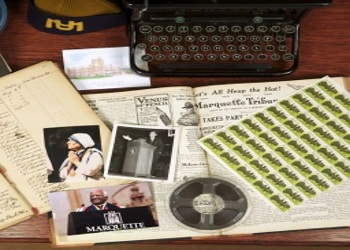IVAN J. KAUFFMAN PAPERS
BIOGRAPHICAL NOTE/SCOPE AND CONTENT
Papers of an author and lay theologian, including writings and files on the Mennonite-Catholic dialogue in which he participated.
Gift of Eda and Lois Kauffman, 2017
Processed by Phil Runkel, 2021
Biographical Note
Ivan J. Kauffman (1938-2015) was an author, ecumenist, journalist, and lay theologian. Born into a Mennonite community and educated at Goshen College, the Earlham School of Religion, and Georgetown University (where he completed doctoral studies in history), he served as executive secretary of the Mennonite Central Committee Peace Section before converting to the Catholic Church in 1968. Not finding a home in academe, Kauffman forged a career as a free-lance writer. In addition to articles and syndicated columns, he published several books, including “Follow Me”: A History of Christian Intentionality (2009). Kauffman became a leader in the Mennonite-Catholic ecumenical dialogue, beginning in the late 1990s, and co-founded Bridgefolk, the grassroots network formed to promote it. In the last decade of his life Kauffman advocated for a new, non-electoral, political party to be established on Gandhian principles. Ivan Kauffman died suddenly from a massive stroke suffered on the Fourth of July 2015.
Series 1, Writings, 1965-2015, contains articles and essays, book-length manuscripts, newsletter and newspaper writings, and student papers, arranged by format and chronologically thereunder. Among the unpublished manuscripts left behind at Kauffman’s death were drafts of a book of essays on Rembrandt’s religious beliefs, a study of the prophet Ezra, and “From Moses to Gandhi,” a projected multi-part work which likely would have been his magnum opus. The latter was conceived as a sweeping study of “the four revolutions”: Yahwist, Christian, Medieval, and Democratic. Most of the surviving drafts are of Part 1 and largely deal with Moses.
Series 2, Bridgefolk Files, 1995-2014, documents Kauffman's involvement in the Mennonite-Catholic dialogue, primarily through the Bridgefolk network he co-founded with Marlene Kropf, Weldon Nisley, and Gerald Schlabach.
There is extensive correspondence with Schlabach. The series is arranged in alphabetical order by format or subject.

